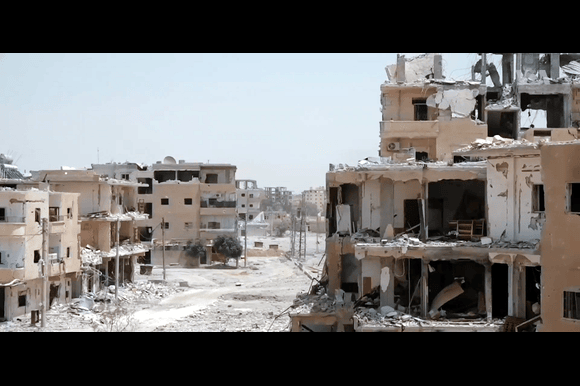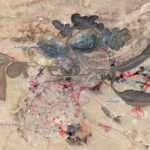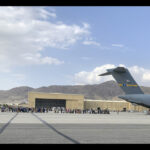A United Nations report has concluded that members of Syria’s interim government forces, as well as fighters loyal to the former regime, likely committed war crimes during sectarian violence that erupted in March, killing an estimated 1,400 people—primarily civilians.
The UN Syria Commission of Inquiry said it found no direct evidence that Damascus authorities ordered the attacks, but documented atrocities perpetrated by both sides during intense clashes along Syria’s coastal region, the traditional stronghold of the Alawite sect of Islam. The violence broke out after Islamist-led rebel forces ousted former President Bashar al-Assad in December following a 14-year-long civil war.
According to the commission, violence escalated when government security forces were ambushed by remnants of pro-Assad factions, sparking retaliatory assaults between mostly Sunni Muslim government forces and predominantly Alawite loyalists. The government deployed reinforcements, including thousands of fighters, and what began as armed conflict quickly devolved into sectarian revenge killings.
The UN report highlighted that “acts that likely amount to crimes, including war crimes”—such as murder, torture, abduction, and inhumane treatment of the dead—were committed by both interim government forces and former regime loyalists.
Chair of the UN Commission, Paulo Sérgio Pinheiro, condemned the brutality: “The scale and brutality of the violence documented in our report is deeply disturbing. We call on the interim authorities to continue to pursue accountability for all perpetrators, regardless of affiliation or rank.”
Although dozens of suspects have reportedly been arrested, the commission urged the interim government to expand investigations and accountability efforts to match the scale of the atrocities. Retaliatory attacks remain ongoing, the report warns, amidst a worsening climate of fear.
The commission said it recorded “gross human rights violations” in at least 16 locations across the Alawite-majority governorates of Latakia, Tartus, Homs, and Hama during early March. Eyewitness testimonies described door-to-door raids where perpetrators reportedly asked residents about their sect before detaining and executing men and boys—most of them Alawites between the ages of 20 and 50. However, women and children, including infants, were also killed in home invasions.
According to the report, attackers filmed themselves committing grave abuses, including severe beatings and executions, and were seen walking beside corpses. Many families, fearing further violence, were forced to keep the bodies of their loved ones inside their homes or on the streets, where they were later buried in mass graves. Overwhelmed hospitals struggled to handle the number of dead.
The violence triggered a mass exodus. Thousands of survivors fled to Lebanon or sought refuge at a Russian-controlled airbase. Many Alawite civilians have since relocated within Syria or fled the country entirely, the commission reported.
The findings point to a consistent pattern of targeted violence against civilians, which the commission concluded “indicates that such acts were not random or isolated.”
Investigators conducted over 200 interviews with witnesses and victims and were granted access to affected coastal areas. The commission linked the outbreak of violence to a post-Assad security vacuum, combined with rampant disinformation and online hate speech targeting Alawite communities.
In response to rising tensions, the interim government had issued public statements urging civilians not to take up arms and warned fighters against harming non-combatants. Curfews and checkpoints were established in some areas—most notably in the city of Tartus—which helped to spare the city from the worst violence seen elsewhere.
A government-led inquiry, published in July, named 298 alleged perpetrators from within military groups and an additional 265 from pro-Assad factions. As of June, authorities said they had arrested 42 individuals linked to abuses and launched a complaints office to address police and military misconduct.
The UN commission called on the interim government to strengthen the judiciary, pursue reparations for victims, and rebuild trust among divided communities.
Since the March violence, sectarian tensions have flared in other parts of Syria. In Suweida, in the country’s south, hundreds have reportedly been killed in renewed clashes involving Bedouin, Druze fighters, and Syrian army personnel, with all sides accused of extrajudicial killings and civilian attacks.
The interim government acknowledged receiving reports of “shocking violations” by individuals wearing military fatigues. In a statement to the BBC, it said that all allegations of atrocities, regardless of the perpetrators’ affiliations, would be thoroughly investigated.






